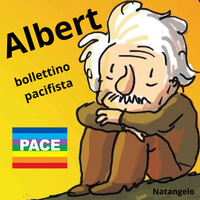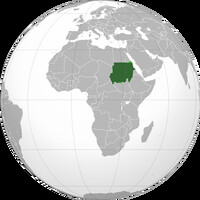Sudan : il governo dichiara l'immediata ed unilaterale fine delle ostilità in Darfur
Sudan 'ceases Darfur hostilities'
Sunday, December 19, 2004 Posted: 1648 GMT (0048 HKT)
KHARTOUM, Sudan (Reuters) -- Sudan's government said Sunday it would immediately and unconditionally cease hostilities in its remote Darfur region, and asked the United Nations and African Union to request that rebel forces do the same.
Foreign Minister Mustafa Osman Ismail, speaking after an emergency meeting with Western diplomats, U.N. and African Union officials, said they did not however discuss withdrawing troops from towns the government has captured from rebels.
"Yes, we will inform our forces in Darfur immediately to stop any fighting, so we will not fire unless we will be attacked by the other side," the minister told reporters.
The African Union had given Sudan a 24-hour deadline, which expired on Saturday evening, to stop hostilities or it would refer the matter to the U.N. Security Council. But the fighting had continued on Sunday morning.
Ismail said the government had obeyed the AU deadline but rebels had attacked again, forcing the army to retaliate and chase them into Labado town, about 65 km (40 miles) east of Nyala, capital of South Darfur state. The army now holds Labado.
A rebel delegate at faltering peace talks in the Nigerian capital Abuja said Khartoum's pledge should not be taken seriously yet because the government has made similar promises in the past week, but failed to keep them.
"Their words do not match their deeds. If they are serious let them stop the offensive. They don't honor their words, we will not accept mere words, we want action this time," Justice and Equality Movement (JEM) spokesman Ahmed Adam told Reuters.
'No withdrawal now'
The peace talks in Abuja failed to begin in earnest because fierce fighting broke out between rebels and the government in South Darfur state last week.
Ismail said the government was ready to withdraw from areas they had won from the rebels during fighting since a much-violated cease-fire was signed in April, but only if the rebels agreed to reciprocate.
"We are not talking about withdrawing now. We are talking about the immediate cessation of hostilities in order to create an atmosphere for those in Abuja to decide what next," he said.
"We are ready to withdraw from any area which used to be under the rebels before the April 8 cease-fire," he said.
Abdel Wahed Muhamed al-Nur, leader of the second main rebel group the Sudan Liberation Army (SLA) told Reuters he would only go to the Abuja talks if government troops withdrew from all the areas they took in the past 10 days as soon as possible.
"The government should withdraw its troops from our places and then we will start negotiations," he said. "And we want to see this on the ground."
The rebel leadership had boycotted the talks because of the military operations in Darfur.
Truce observers
The African Union has been mediating between the two sides in Abuja and has more than 800 truce observers in Darfur.
Referral to the Security Council would raise the stakes in the truce monitoring procedure, which most of the parties have tried to leave to the African Union.
The rebels have said they want international intervention and forces in Darfur to monitor the shaky cease-fire.
The two main rebel movements took up arms in early 2003 in protest at what they called political marginalization of the region and harassment of African villages by Arab militias.
The conflict has displaced over 1.6 million people in Darfur. Tens of thousands have been killed.
The rebels blame much of the violence on Arab militias known as Janjaweed and say they have operated with help from the army. The government says it did recruit militias as auxiliaries but has nothing to do with the Janjaweed, which it calls outlaws.
Articoli correlati
 Albert - bollettino pacifista del 28 settembre 2024
Albert - bollettino pacifista del 28 settembre 2024Per la pace, per la verità, per il disarmo
L’indignazione non basta per descrivere l'ultimo crimine di guerra in Libano. Una squadra di caccia israeliani ha sganciato bombe da una tonnellata su un quartiere densamente popolato di Beirut, lasciando sotto le macerie i civili innocenti.28 settembre 2024 - Redazione PeaceLink Bambini in fuga, un'intera generazione esclusa dalla scuola
Bambini in fuga, un'intera generazione esclusa dalla scuolaGuerra in Sudan: le testimonianze di missionari e organizzazioni sull'attuale drammatica situazione
Suor Ruth del Pilar, Padre Angelo Giorgetti e Vittorio Oppizzi raccontano le difficoltà quotidiane tra conflitto e insicurezza alimentare. Marco Impagliazzo di Sant'Egidio richiama l'Italia a rilanciare una conferenza internazionale per la pace.11 luglio 2024 - Redazione PeaceLink
Genocidi in Africa: “Per Non Dimenticare”
Articolo realizzato in collaborazione con Raffaele Masto, scrittore, giornalista e conduttore radiofonico italiano22 giugno 2015 - Laura Tussi Dal 14 agosto è stato rapito
Dal 14 agosto è stato rapitoLiberate Francesco
Mobilitiamo l'opinione pubblica per la liberazione di Francesco Azzarà, l'operatore umanitario di Emergency rapito in Sudan. Ci sono persone che decidono di dedicarsi al prossimo in maniera totale. Francesco è uno di questi22 ottobre 2011 - Associazione PeaceLink
Sociale.network